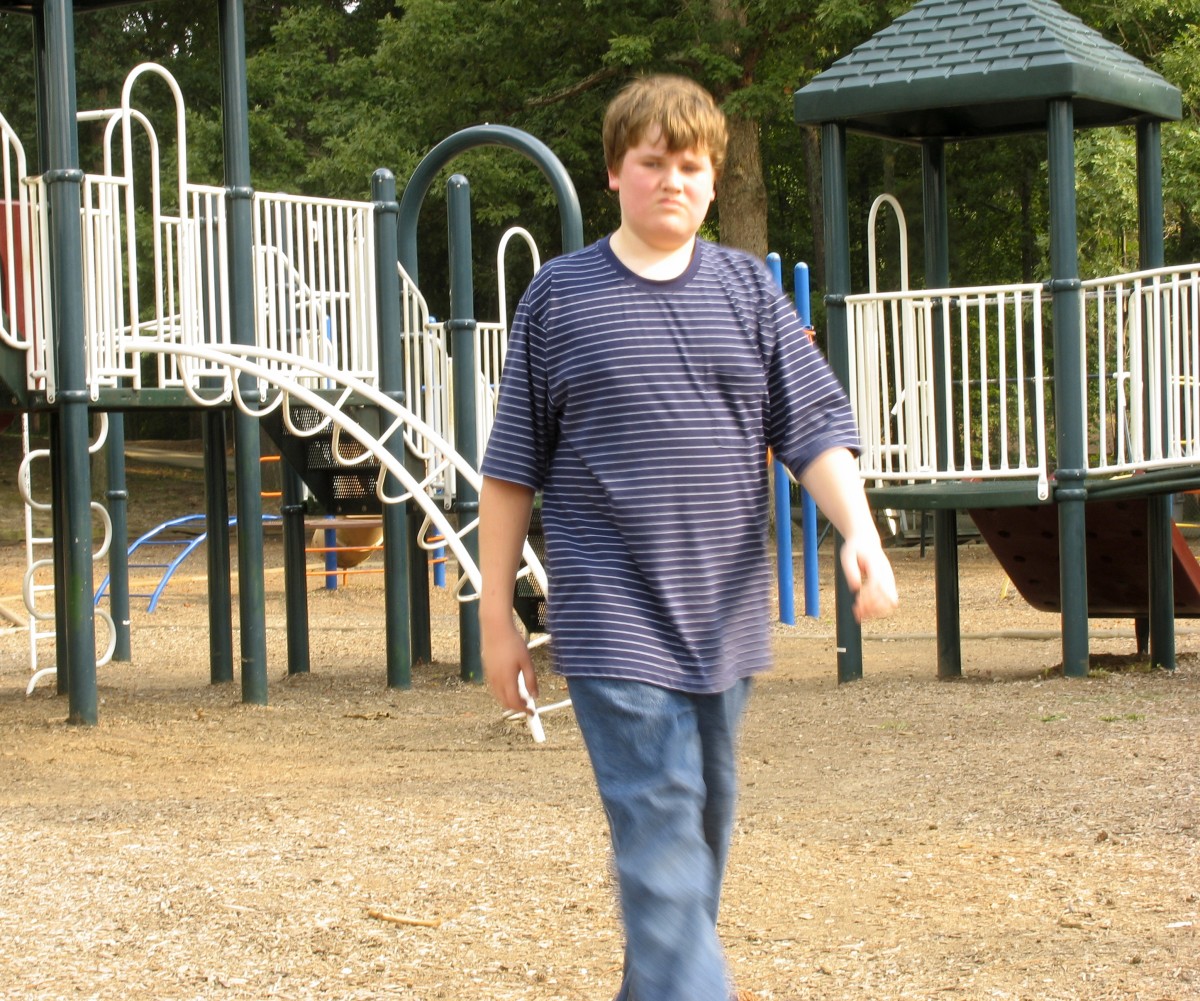Classroom Management: Accountability in Teaching

Envision Being Video Recorded
As elementary teachers close their classroom doors with their students inside, they experience this false sense of autonomy that speaks to them within their deep inner voice that whispers whatever they do, whatever they say, or whatever attitude they display through their nonverbal communication, ultimately, they will not be held accountable, because after all, they are the adults, and their classrooms are filled with children, who are easily fooled, easily deceived, and easily influenced. Elementary children lack the social knowledge that comes from experiences over time that adults have acquired for the sake of discerning or perceiving the true, underlying messages and intentions that teachers have which are so easily covered up with a fake smile, or false flattery. Teachers know this, so therefore, hold the potential to be emotionally abusive to their students and think that they can get away with it. But, in reality, they won’t: God will hold them accountable for their attitude, intentions, and behavior towards the children that he has given them to teach (1 Peter 4:5). During my elementary teaching days, I envisioned being video recorded by God which helped to keep me accountable for my behavior towards my students.
More than a Teacher
Elementary teachers assume the role of substitute parents during the school day. In many cases they spend more time with their elementary children than the parents do; therefore it is imperative that that they cultivate an attitude of love, caring, support, and accountability that parents do. Treat them as you would your own children, however, they are on loan to you from their parents, who have entrusted you with their care.
Children and Parents Share Connected Bonds
Children are the most prized possession of parents. All their hopes and dreams are embodied into their children. Parents and children hold an emotional bond with each other that lasts a life time. Whatever happens to their children happens to the parents as well. Parents feel their children’s joy, excitement, and successes; but they also feel their pain, suffering, anguish, and defeat. Whatever happens to elementary children during the school day becomes manifested into their behavior when they are home with their parents and family. Young children usually don’t have the understanding or the words to express what they are feeling or why they are feeling as they are, so instead, their emotions, whatever they may be, are demonstrated through their behavior, and parents are usually able to “read” their children’s behavior and know when things are either going well at school or when things are going terribly wrong. But, finding out from the child exactly what or who is at the center of their anger, fear, frustration, or anxiety is one of the most difficult things to do.
Children Discern Other Children-Not Adults
Elementary children are most familiar with the behavior of other children. By the time they become school-age, and continue growing cognitively and emotionally through the elementary years, they become increasingly adept at figuring out the behavior of other children around them. They can understand and perceive when another child does not like them, does things to hurt them, sets them up for damage, or shuns them. Children can interpret these actions partly because they are on the surface of their behavior and easily distinguishable, but also because children come to expect or become familiar with these behaviors from other children around them.
On the other hand, elementary children frequently view their teachers, much like they do their parents, in a continuous role of caregiver, someone they can trust, someone who loves them, and someone who will support them. Therefore, it is extremely difficult for children to perceive, let alone explain to someone else, if their teacher is treating them badly, especially since teachers, unlike elementary children, are more adept at disguising their true intentions towards the mistreatment of their elementary students, especially the ones they dislike for whatever maligned personal reasons. In other words, they are accomplished at covering up their tracks. Therefore, it is practically unrealistic to expect a child to discern, let alone, explain mistreatment from his teacher. Therefore, it is crucial for parents to watch for indicators that their child might be suffering under the hands of an abusive teacher. These signs could include, but are not exclusively limited to the following: refusal to go to school, not expressing kind or caring words or actions about the teacher; or expressing anxiety, fear, or anger when home from the school day, coupled with a lack of blaming another child. If this is the case, it could be the teacher at the heart of the child’s suffering, and the parents should bring their concerns to the school guidance counselor, who is an advocate for children, and will keep conversations in confidence. A word of caution, though, sometimes children misinterpret the intentions of discipline, both from teachers and parents.
Children Misunderstand Discipline
Teachers, like parents, need to discipline their elementary children, and when they do, children many times respond back to them with comments such as: “You hate me!” “You don’t love me!” “I’m no good!” or, “You’re picking on me!” Frequently, children don’t have the cognitive understanding of the good intentions teachers and parents have behind their discipline, all they perceive are the actions of discipline and not the true intentions that lie underneath. That’s why discipline and love need to be combined together. Teachers, like parents, need to demonstrate to their elementary children that they love them, and that the discipline is an expression of care and concern for their success in life. Elementary children many times do not equate the two together, and may not truly see the relationship between love and discipline until they are much older, so to expect them to understand and accept, is an unrealistic expectation, therefore it is important for parents and teachers not to take the child’s rebuke to heart.
Become an Expert Observer
Since most elementary children lack the cognitive and language ability to explain what they are experiencing or feeling, it is crucial for the teacher to become an expert at “reading” and “discerning” their elementary children’s behavior for the sake of helping them. This entails observing them very closely and “reading” their verbal as well as their nonverbal communications, including how they interact with other children. The emotional well-being of children is not the only concern of elementary teachers; they also need to be cognizant of each child’s physical health.
Teachers have their elementary children in front of them for almost eight hours a day for close to 180 days in a given school year. They are mostly together in one classroom during this time. This affords the teacher with an unusual amount of observational background information regarding each child, not only with the child’s emotional, social, and academic behavior, but also each child’s physical state. A teacher can notice when a child appears tired, sick, coming down with a cold, or flu. In addition, a teacher can notice when a child is going to the bathroom too frequently, seems lethargic, unable to concentrate, appears distracted, or has physical injuries either minor or major. In contrast, parents, even when they are home with their children, the children are frequently playing or involved in various activities in different rooms of the house, away from the parents constant and continuous view. It’s quite possible that a child could be experiencing a serious medical complication and the parents are unaware of it.
Case Examples
I had an elementary student that I noticed when we came back to the classroom from the computer room would put his head down on his desk and appear to fall asleep. When I would try to wake him, he became agitated, disoriented, his speech was garbled, his complexion became red and flushed, and his eyes seemed unfocused. It would take him about an hour before he was fully responsive to me. After several similar occasions, I reported my observations to his parents who took him to their pediatrician along with my written observational notes. The family doctor ordered brain testing which revealed seizure activity as a result of flashing or blinking lights typically associated with viewing computer screens of all types. His parents said that they hadn’t noticed this behavior, because when he came home from school, he usually went straight to his computer located in a lower level room of the house, away from the parents, and coupled with the activities of the other children in the home, they usually had very little time to observe these behaviors in him, and when they did, they attributed it to just being tired and irritable.
In another situation, I noticed that one of my elementary students had to go to the bathroom almost every thirty minutes or so. In addition, during the school day, he frequently became increasingly agitated, irritable, lethargic, and his facial complexion would become increasingly red and flushed. After reporting my observations to the boy’s father, he took him to see their family doctor, who, after running some tests discovered that the boy was suffering from diabetes, and here again, the parents didn’t notice the telltale markers of diabetes because they didn’t have the boy in front of them like I did for extended periods of time.
Love, Care, and Documentation
When elementary teachers receive their new classroom of students for the year, they assume personal accountability in multiple ways in regards to their care and education of their elementary students. Not only is it crucial that they treat each child with sincere love and care, it’s also critical that they become observant for subtle changes in behavior, both emotional and physical, and in addition, to practice the daily routine of keeping observational notes regarding each of their students. The notes that I kept became the documentation necessary for assessing and evaluating over long periods of time changes in children’s behavior that were indicative of serious, life-threatening medical conditions that were going undetected in the typical environment of home life.
Elementary teaching is an enormous responsibility; however, you don’t really have autonomy. If you fully commit your life along with your teaching to God, he will help you moment by moment, each and every day to take care of and effectively educate the children that he has given you (Ps. 32:8; Ps. 37:5-7; Ps. 73:24).
Reference
International Bible Society (1984). The Holy Bible, New International Version. Grand Rapids, MI: Zondervan Publishing House.
Acknowledgments
For several years I worked as a program developer and coordinator for children with special needs that mostly encompassed severe to profound physical and mental disabilities. It was through my work with these children that I learned to become increasingly dependent on God for my work-life, and learned how to sharpen my child observation skills for my later teaching career. The smallest detail in planning and care could have a huge impact on these children’s lives. After I applied for this position, I began to have second thoughts about my abilities to handle the responsibilities that went along with it. I even went so far as to try to back out; however, the person who interviewed me, and later became my supervisor and mentor, convinced me that I was the person she had envisioned for the job. I am grateful to Nan Allen Mauer for believing in me when I didn’t even believe in myself.
I would like to thank Dr. Charles F. Stanley for his inspirational messages that I have listened to, read, and studied for almost 20 years. Even though we have never met, his work for God has greatly influenced all areas of my life.








